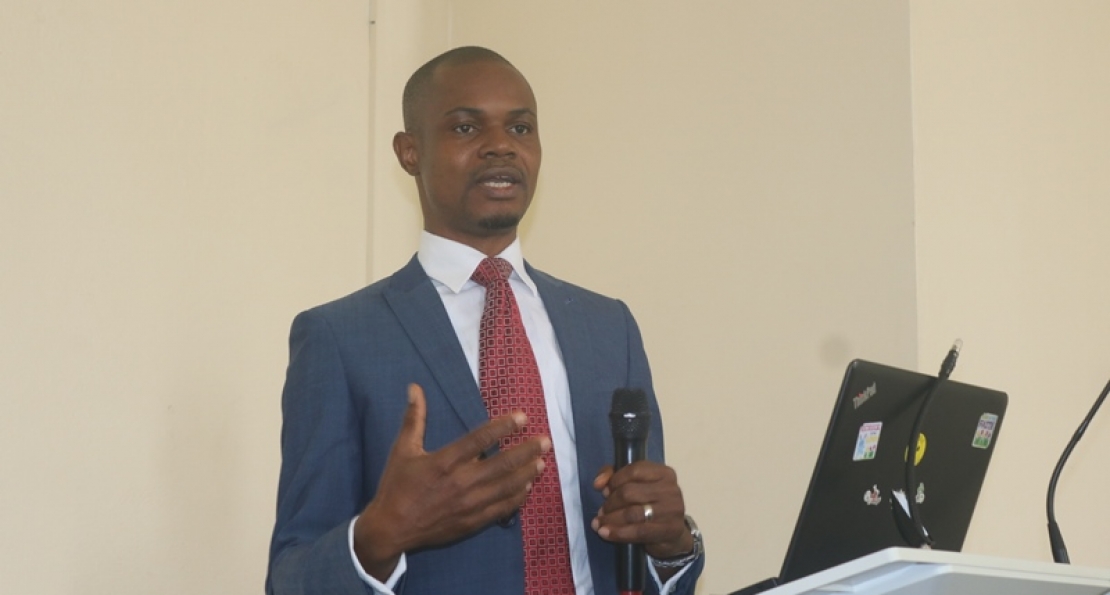Assistant Professor in the School of Law, Dr. Obinna Dike, says it is lawful for host communities to negotiate community development agreements.This is despite Nigeria’s constitution fully vesting land rights and resource control in the hands of government.
He made the assertion at the School of Law seminar of February 21, 2020. Professor Dike presented a paper on Emerging Framework for Industry/Community Relations – an exploratory comparative study of Nigeria, Canada, and Australia
"In many jurisdictions, resource development contexts are gradually getting accustomed to relatively new categories of contractual relationships other than the traditional investor-state contracts."
He said negotiation of contractual agreements involving both Aboriginal and non-Aboriginal community groups and resource developers, within the extractive industry is now seen as standard practice in Canada, Australia, Papua New Guinea, Mongolia and to some extent, Nigeria.
"In a few others, this arrangement assumes a tripartite structure in which a state actor is made a party."
The paper examines Nigeria's legal requirements for the various types of company-community agreements that exist in mining, and oil and gas sectors. Also, the paper compared Nigeria's legal and regulatory requirements with similar contractual relations in Canada and Australia.
He maintained that in the Nigerian context, to understand the basis for industry community agreement (what the Mining Act calls Community Development Agreement), there is a need to look at the constitution.
"The first time when I started this project, the first thing people ask me was that Nigeria operates a constitutional democracy and by the constitution, all resources wherever found in Nigeria belong to the federal government."
The seminar attendees were curious to know whether a community now has the right to enter into a private agreement with a resource developer that has acquired resource development title from the federal government.
"However, looking at the Mining Act, 2007, the act made interesting provisions regarding the right of what the Act calls ‘Host Communities’ to negotiate community development agreements. But in the Petroleum sector, the status still remains that there is no obligation."
All the agreements that have existed in the oil and gas sector which are basically non-binding agreements styled as MOUs or GMOUs, the products of the exigencies of the challenges of the Niger Delta where the companies felt the need to enter into these types of agreements as a deliberate strategy to achieve relative peace with communities.
As for the petroleum sector, he said there is no existing legal or policy framework similar to what exists in the mining sector.
"But the Petroleum Industry Bill is still undergoing legislative processes before the national assembly. Recently, before the term of the 8th assembly ended, they passed two aspects of the PIB and the public hearings were held regarding the aspect of dealing with host communities."
He maintained, however, that the bill has provisions for some form of recognition for host communities.
"But there is no express provision for community engagement or active community participation in the process of development. So what we still have in the oil and gas sector is a non-binding industry-led approach of signing a memorandum of understanding with host communities."
We are looking to the legal framework for the communities in the petroleum sector,
He went on to argue that so long as the economic resource was held for the Nigerian citizens, it was important that a mining sector style framework and legislated, implicated and supported by the Federal Government. Unless this is done, the natural resources industry may miss a strategic opportunity to leverage its unique attributes to engineer or facilities development and community sustainability.
To back his claim, he referred to the Nigerian constitution, quoted relevant sessions of the Nigerian constitution which shows that wherever one finds economic natural resource - mineral ores and natural gas, it belongs to the federal government.
"If that is the case, on what basis can a community assert rights to negotiate or can a community assert a right to have an agreement negotiated," he questioned trying to reason with the critics.
"But we have what is known as the Land Use Act which says that all land found in any state is held in trust on behalf of the citizens of the state. The argument, therefore, he went on, "is that the title of the federal government relates only to the resource where you have land title belonging to the state on behalf of the members of that state."
He further gave instances under the Land Use Act, where there is recognition for communal land. He maintained that the process of resource development is done under the context of multiple and overlapping legal rights.
"That, in my opinion, creates the basis for state and communities to assert a legal right, not to the resource but to negotiate for the conditions of access to the land."
Reported by Omorogbe Omorogiuwa


